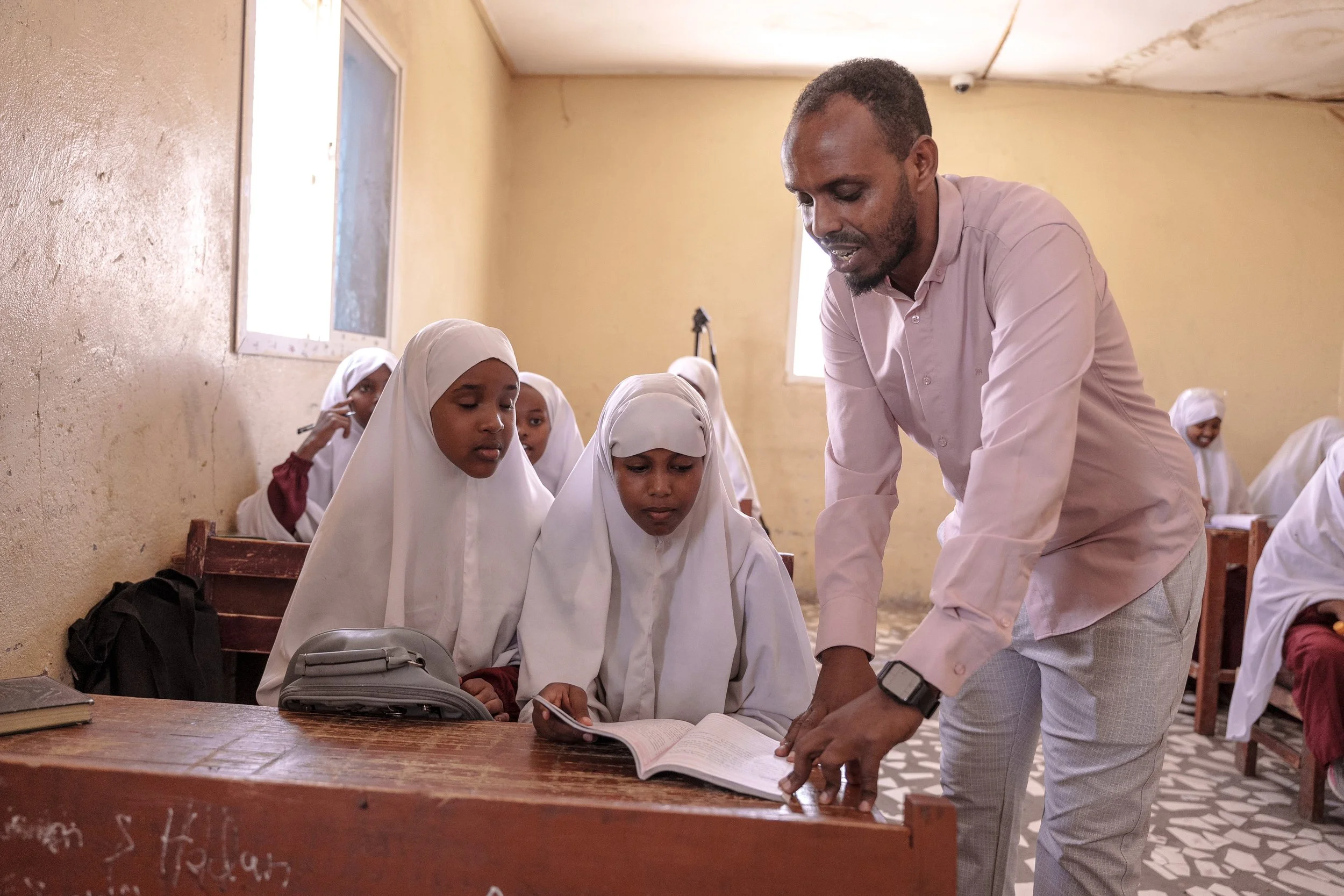Quality Education
Good quality education fosters human development and provides not only knowledge but hope that a brighter future is possible.
Goal 1 of our 2026-2030 Strategic Plan is to improve the quality of education at all levels in Eastern and the Horn of Africa.
While access to education has expanded in the region, quality remains a major challenge. Persistent issues include a shortage of trained teachers, inadequate resources, limited use of technology, language barriers, and weak foundational learning.
How do we ensure Quality Education?
By working with educators, advocating for policy changes, and increasing the availability of English Language training, we strive to ensure that every child receives a good quality education.
We focus on improving teaching quality - particularly at the foundational level - by investing in teacher training, learning materials, curriculum development, and better learning environments to drive meaningful, lasting improvements in education.
Empowering teachers
Teachers are vital to success of any education system.
But in countries deeply affected by conflict and poverty, they play a pivotal role in the peaceful and continued self-development of children.
In the countries where we work, training is often poor and a large proportion of teachers – especially at primary level – are untrained.
Our projects improve teachers’ skills and abilities through world-class training to be mentors, motivators, and protectors.
Supporting English Language skills
English has a unique status around the world.
In East Africa and the Horn of Africa, it is the dominant language in educational institutions and public life.
While we recognise the importance of fostering expertise in local languages, we also know that in the countries in which we work, being able to have proficiency in English results in higher education attainment and ability to succeed in professional careers.
We train teachers directly in English, and engage stakeholders on policy issues to help facilitate this more widely.






